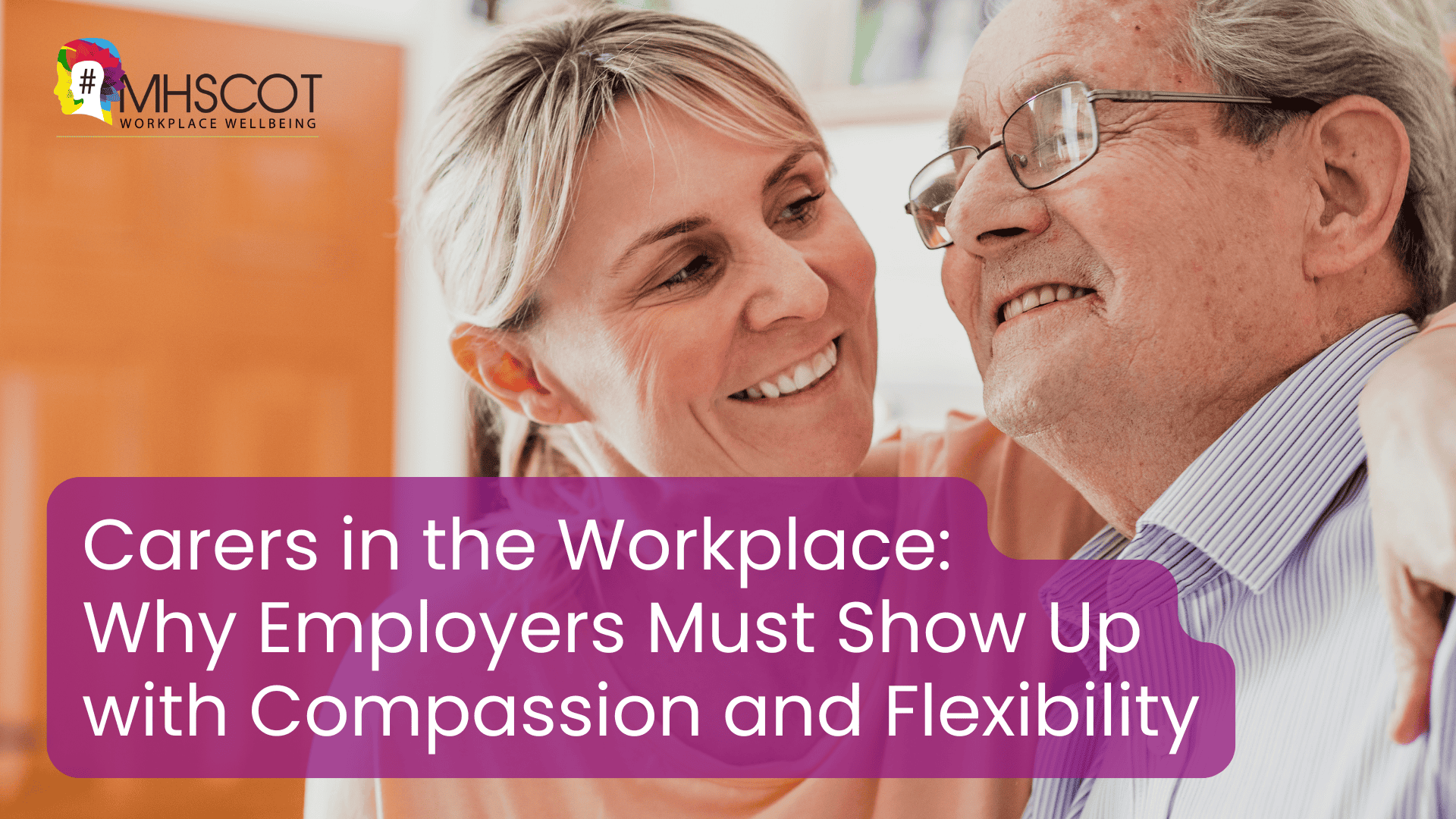
Carers in the Workplace: Why Employers Must Show Up with Compassion and Flexibility
2 minute readEvery day across the UK, millions of people quietly juggle the demands of work while providing unpaid care for a loved one. It might be a parent supporting a child with additional needs, a partner caring for someone with a long-term illness, or a son or daughter looking after ageing parents. For these working carers, the toll on mental health is often invisible - but no less real.
At MHScot, we hear time and time again about the relentless balancing act carers face. The expectations placed upon them — both in the workplace and at home — can feel impossible to meet.
A recent report from Carers UK highlights this growing issue. The study found that working carers are more likely to experience poor mental and physical health than their non-caring colleagues. And yet, many employers still don’t fully recognise or address the unique challenges this group faces.
It’s time for that to change.
The Mental Health Toll on Working Carers
For those balancing employment with caring responsibilities, daily life can be a whirlwind of tasks, emotional labour and endless decision-making. It’s no surprise that many report feelings of:
- Overwhelm — when the to-do list never shrinks and every responsibility feels urgent.
- Guilt — for feeling they’re not giving enough to either their work or their loved one.
- Exhaustion — not just physical tiredness but emotional depletion from constantly holding everything together.
- Pressure — to maintain ‘professionalism’ while managing personal crises behind the scenes.
Resilience is often held up as a virtue in these circumstances. But resilience shouldn’t mean endlessly pushing through without support. True resilience is about recognising when to rest, ask for help and work within systems that understand and accommodate individual needs.
The Role of Employers: It’s About More Than Policies
Support for carers can’t be a tick-box exercise. While having policies in place is a good start, what truly makes a difference is a culture of empathy, open conversation and genuine flexibility.
The Carers UK report calls for employers to take further action, not just in offering practical support like flexible working, but in actively creating workplace environments where carers feel able to speak up without fear of stigma or disadvantage.
At MHScot, we advocate for wellbeing-led leadership — where managers are trained to spot the signs of stress and overwhelm, and where conversations about mental health are normalised, not avoided.
What Can Employers Do?
Here are some simple, human ways employers can better support working carers:
- Open up conversations. Don’t assume you know what a carer needs — ask.
- Offer genuine flexibility. Flexible working hours, remote options or job-sharing can be life-changing.
- Provide mental health support. Access to Mental Health First Aiders, wellbeing resources and signposting to external services makes a difference.
- Train managers. Equip leaders with the skills to support mental health and understand the additional pressures carers face.
- Create peer support opportunities. Connecting carers within your organisation can reduce isolation and foster solidarity.
A Call to Action
Carers bring incredible resilience, empathy and strength to their workplaces. But they shouldn’t have to do it alone.
If we want truly healthy, inclusive workplaces, we need to build environments where carers can thrive — not just survive.
Let’s be the kind of employers who show up with compassion, flexibility and understanding. Because when we support carers, we support families, communities and the wellbeing of our entire workforce.
If you’d like to talk about how your organisation can better support employee mental health and wellbeing, including those with caring responsibilities, we’d love to help.
Visit www.mentalhealthscot.land or get in touch.